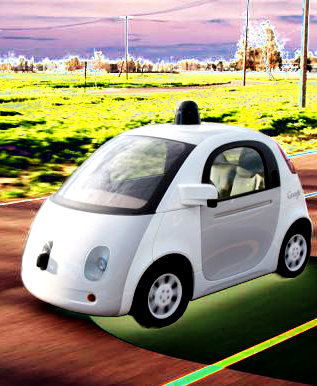Robo-car health effects checked
 A new survey has revealed some of the challenges on the way to fully-automated driving.
A new survey has revealed some of the challenges on the way to fully-automated driving.
The research examined the Australian public’s receptiveness to autonomous vehicles, which are capable of navigating without human input, and their potential public health benefits.
Lead author Professor Simone Pettigrew from Curtin University says the research found that very few people are aware of the potential public health benefits of autonomous vehicles.
“It has been estimated that complete automation in the Australian transport sector would save more than 1000 lives, 30,000 hospitalisations and $16 billion in crash-related costs every year,” Professor Pettigrew said.
“However, this research shows most Australians are largely unaware of the immense public health benefits of autonomous vehicles, and some are concerned the vehicles would actually result in more crashes.”
Professor Pettigrew said about three-quarters of respondents (73 per cent), once prompted, believed it was likely or very likely that older people and people with disabilities would enjoy greater mobility from the use of autonomous vehicles.
“About half of respondents, ranging from 45 per cent to 54 per cent, indicated that autonomous vehicles would reduce crashes, emissions, and driving-related stress while also improving cyclist safety,” Professor Pettigrew said.
“Men were also more likely to have positive feelings about the widespread use of autonomous vehicles than women.”
Professor Pettigrew said the study showed that many respondents could see how autonomous vehicles might improve lives once they were exposed to the possible positive outcomes.
“This research shows that although Australians were mostly unaware of the public health benefits of autonomous vehicles, many showed a willingness to accept these benefits once they were outlined to them,” Professor Pettigrew said.
“This suggests there is likely to be incredible potential to build these positive attitudes to autonomous vehicles by informing the public about the ways in which this transport innovation can improve people’s lives and significantly enhance road safety.”
Key findings from the report include:
- 73 per cent of Australians believed it was likely or very likely that older people and people with disabilities would enjoy greater mobility as a result of autonomous vehicles
- 54 per cent believed autonomous vehicles were likely or very likely to reduce the stress of driving, and 49 per cent believed the technology would reduce crashes
- 45 per cent of respondents believed it would likely or very likely reduce emissions and pollution and 45 per cent believed it would improve cyclist safety
- About one-quarter of respondents (23 per cent) indicated they felt negatively about the widespread use of autonomous vehicles, with the remaining respondents equally divided between neutral (40 per cent) and positive (37 per cent) feelings towards the technology
- Men were more likely to have positive feelings about the widespread use of autonomous vehicles compared to women (44 per cent compared to 31 per cent)
- 13 per cent of respondents were concerned that autonomous vehicles would result in more crashes







 Print
Print